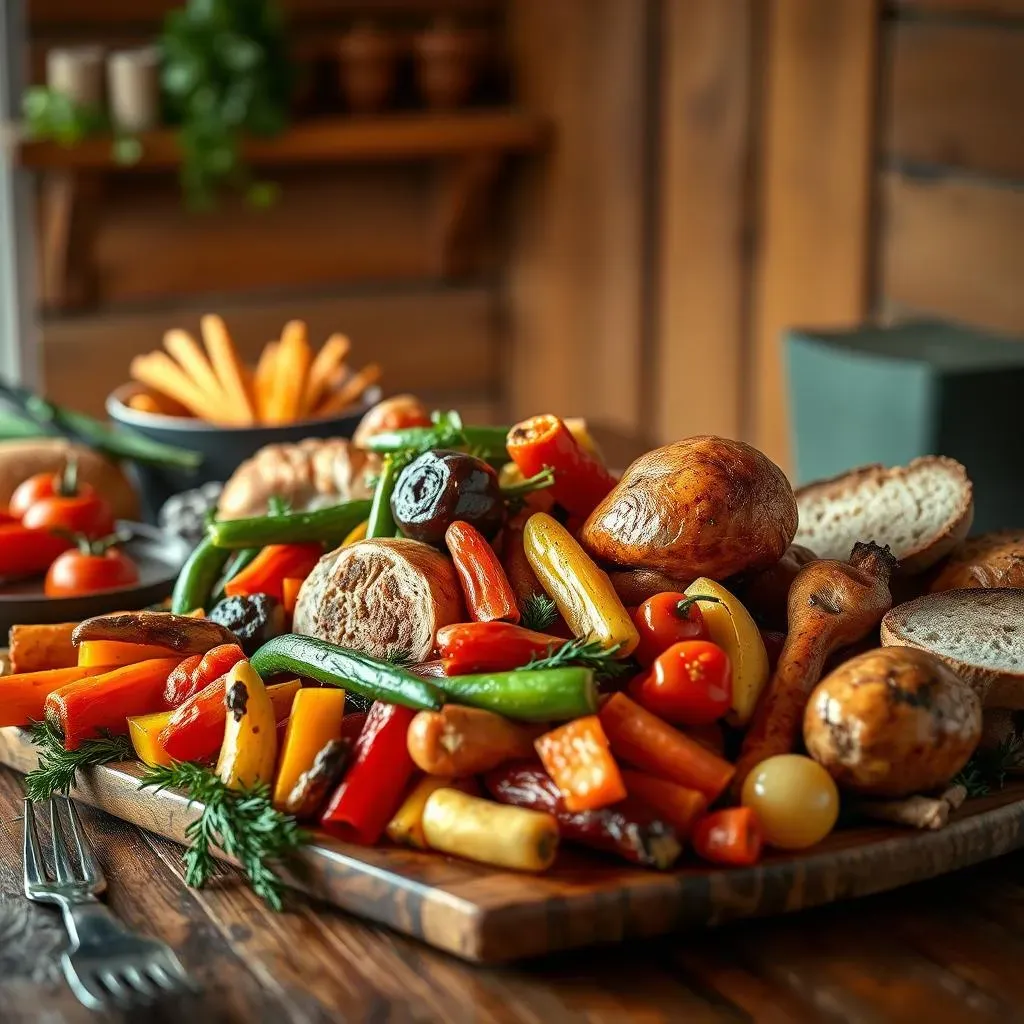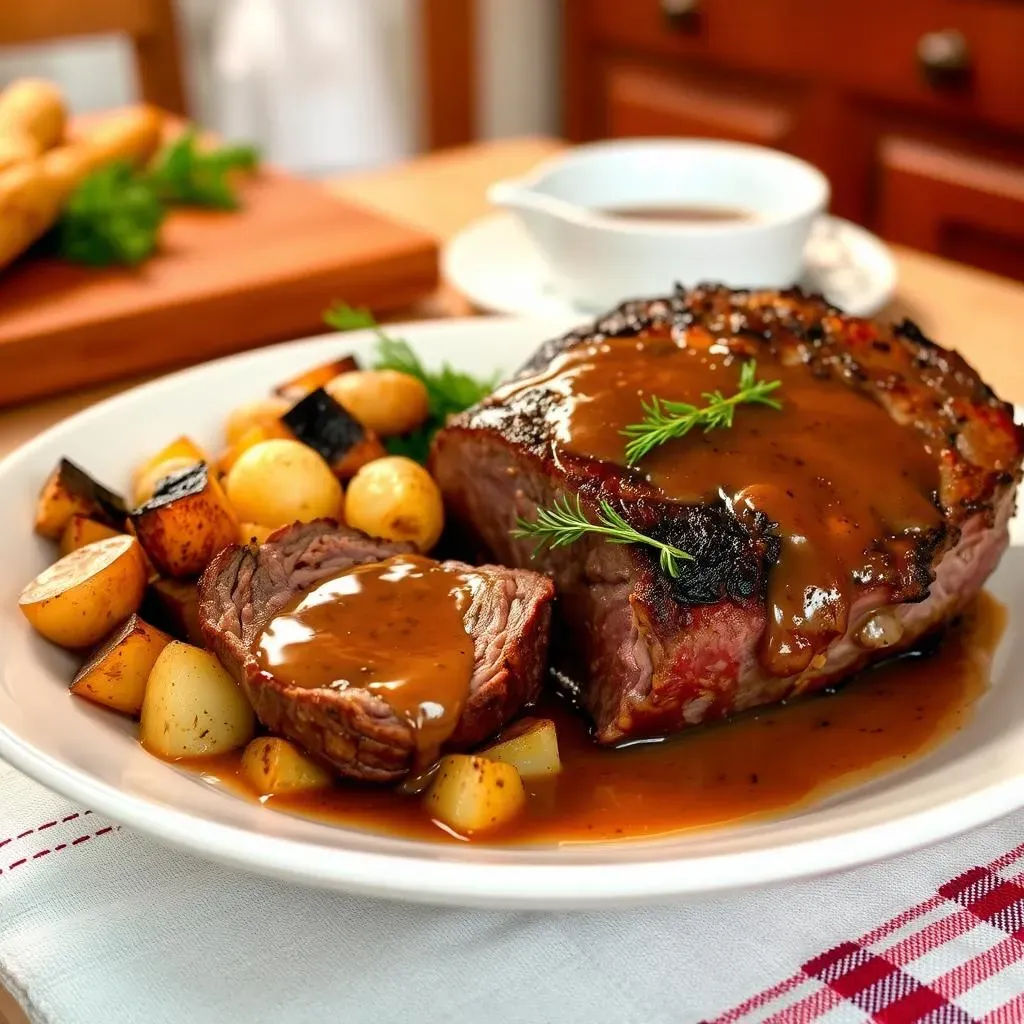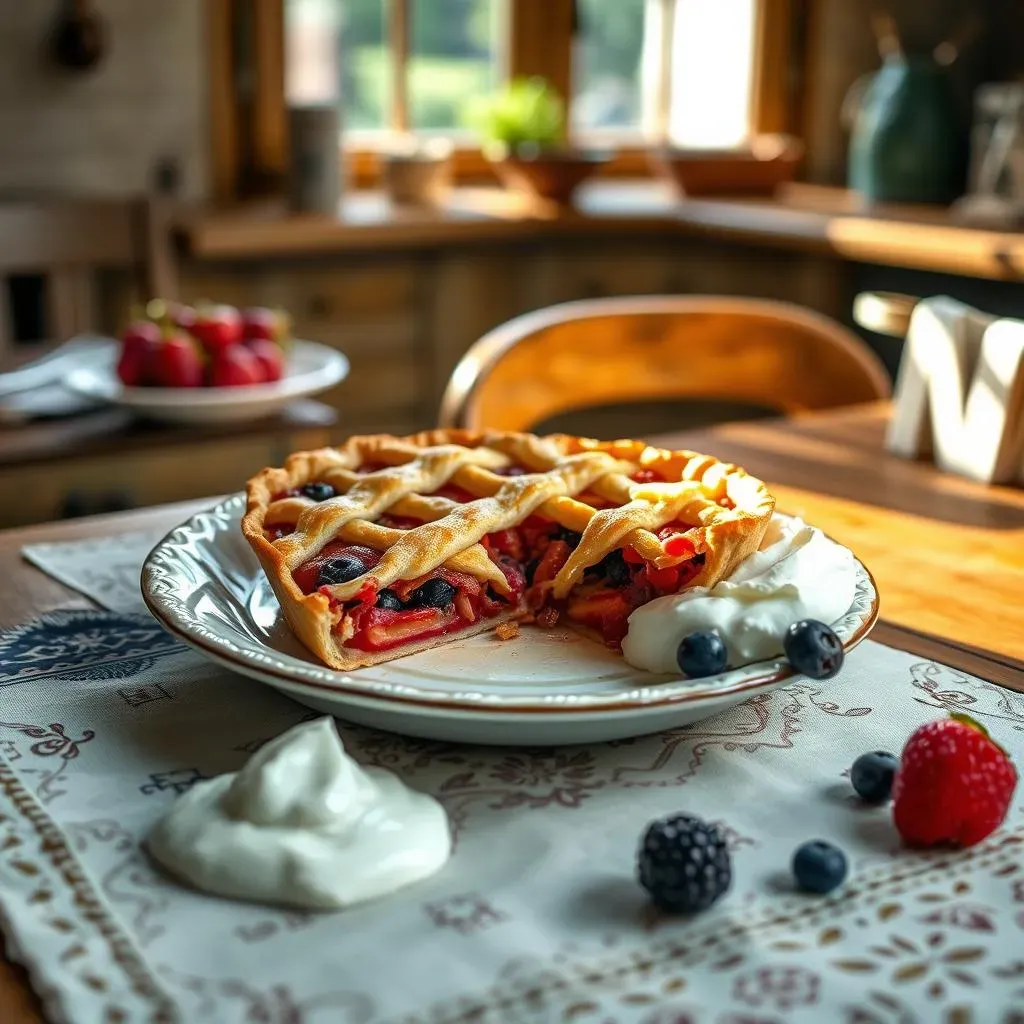Table of Contents
Sunday dinner, a beloved tradition for many, often conjures images of hearty roasts, gravy-laden plates, and maybe a touch of guilt. But does it have to be that way? The question "is a sunday dinner healthy" is one many of us ponder. We all enjoy a good roast, but sometimes those huge portions and rich sauces can leave us feeling a bit sluggish, not to mention concerned about our waistlines. This article isn't about banishing your Sunday roast, it's about tweaking it. We'll explore some easy swaps you can make without sacrificing any of the flavor. We'll cover everything from choosing leaner meats and loading up on veggies, to making healthier gravy and even dessert options. Get ready to enjoy your Sunday feast with a little less worry and a lot more satisfaction. We'll explore how small changes can make a big difference, and that it is possible to have your roast and eat it too, guilt-free.
Making Your Sunday Roast Healthier: Simple Swaps

Making Your Sunday Roast Healthier: Simple Swaps
The Veggie Power-Up
let's be honest, sometimes the veggies on our Sunday roast get a little overshadowed. We tend to focus on the meat and potatoes, but what if I told you that veggies are the secret weapon to a healthier roast? I'm talking about loading up at least a third of your plate with colorful goodness. Think about it, more veggies means less room for the heavier stuff. And it's not just about quantity, it's about variety too. Instead of just boiled carrots and peas, why not add some roasted broccoli or some steamed green beans? Get creative with it! It's a simple way to boost nutrients and fiber without sacrificing any of the joy of a Sunday roast.
Rethinking Your Cooking Methods
Another easy swap? How you cook your veggies. I get it, roasting everything in a ton of oil seems like the only way to get that crispy texture, but it's not. Steaming or boiling veggies is a great way to keep their nutrients intact and cut back on unnecessary fats. Plus, it can actually make the natural flavors of the vegetables shine through more. And don't worry, you can still get those crispy edges by adding a light drizzle of unsaturated oil at the end, or even just a sprinkle of herbs and spices for extra flavor. It's all about finding a balance that works for you and your family. Trust me, your body will thank you for it.
Swap | Why it's Healthier |
|---|---|
Oven-roasting all vegetables in lots of oil | Steaming or boiling most vegetables, with a light drizzle of oil at the end |
Only a small amount of vegetables on the plate | At least a third of your plate with a colorful variety of vegetables |
Smart Choices for Meat, Veggies, and Trimmings

Smart Choices for Meat, Veggies, and Trimmings
Meat Matters
let's talk meat. It's the star of the show for many of us on a Sunday, but it can also be a major source of saturated fat. Instead of going for that super fatty cut of beef, why not switch to leaner options? Chicken or turkey, without the skin, can be great choices. They're packed with protein but have less of the bad fats. And if you're sticking with beef or lamb, just trim off any visible fat before cooking. It's a small effort that can make a big difference. I know, I know, some people love that crispy skin, but maybe save it for a treat and go skinless most of the time. It's all about balance, right?
Gravy Goodness (or Not)
Now, gravy. It's the glue that holds a roast dinner together, but it can also be a sneaky source of salt and fat. Instead of using those instant gravy granules, that are loaded with salt, try making your own. It's actually not as hard as it sounds. You can use the juices from your roast and a little bit of cornstarch to thicken it. If you are in a rush, look for reduced-salt versions of the instant stuff. Or even better, use homemade stock cubes. It's a small change that can really reduce the amount of salt you're consuming. It's all about being aware of those little extras that can add up.
Swap | Why it's Healthier |
|---|---|
Fatty cuts of meat | Leaner options like chicken or turkey (skinless) |
Instant gravy granules (high in salt) | Homemade gravy or reduced-salt versions |
Roast Potatoes: The Healthier Way
Ah, roast potatoes, a classic. But they don't have to be swimming in oil to be delicious. The trick is to cut them into big chunks, parboil them, and then just brush them with a little unsaturated fat before roasting. This way, they get nice and crispy without soaking up a ton of oil. I've tried this, and I can tell you, they're still super yummy, and you don't feel that heavy feeling afterward. Plus, if you're feeling adventurous, try adding some herbs or spices for extra flavor. It's a simple way to make a classic dish a little healthier.
Healthy Dessert Ideas and Portion Control

Healthy Dessert Ideas and Portion Control
Sweet Endings Without the Guilt
let's talk dessert. I know, after all that talk about healthy swaps, you might think I'm going to suggest skipping it altogether. Not a chance! I believe a Sunday roast should end on a sweet note, just maybe a slightly healthier one. Instead of those super-rich, store-bought desserts, why not try making a homemade fruit pie or crumble? These are great because you can control the amount of sugar and fat that goes into them. Use unsaturated spread instead of butter, and semi-skimmed milk instead of full-fat. Load them up with seasonal fruits for natural sweetness. It's a win-win, you get a tasty treat and it's way better for you.
And if you're not a baker, a simple fruit salad with a dollop of low-fat yogurt can also be a delicious and refreshing option. It's all about making smart choices that satisfy your sweet tooth without derailing your healthy eating goals. Remember, it's not about deprivation, it's about making better choices most of the time. So, go ahead and enjoy that dessert, just maybe not the whole pie!
The Power of Portion Control
Now, even with healthier options, portion control is key. It's easy to get carried away, especially on a Sunday when you're surrounded by delicious food. My advice? Use smaller plates. It sounds simple, but it really works. It helps you visually gauge how much you're eating. Also, try to be mindful of what you're putting on your plate. Don't just pile everything up without thinking. Take a moment to appreciate each part of your meal and eat slowly. This will help you feel full and satisfied without overeating.
And if you're still hungry after your first plate, wait a bit before going back for seconds. Sometimes, it takes a little time for your body to register that it's full. It’s about being more aware of your body's signals. And remember, it's okay to have a treat, but it's all about moderation. So, enjoy your Sunday roast, savor every bite, and listen to your body. It's a marathon, not a sprint!
Swap | Why it's Healthier |
|---|---|
Store-bought, rich desserts | Homemade fruit pies or crumbles with less sugar and fat |
Large portions | Smaller plates and mindful eating |
Wrapping Up Your Healthy Sunday Feast
So, is a Sunday dinner healthy? Absolutely, it can be! It's all about making smart choices and not depriving yourself. By focusing on lean meats, loading up on colorful vegetables, and being mindful of portion sizes, you can enjoy your weekly roast without any of the guilt. Remember, small swaps like using less salt, opting for healthier fats, and making your own trimmings can make a big difference. Don't be afraid to experiment with new recipes and vegetarian alternatives. The goal is to savor the tradition while nourishing your body. And if you need more ideas or support, there are tons of resources out there, like the British Heart Foundation, ready to help you on your journey to a healthier, happier you. So go ahead, enjoy your Sunday dinner, and feel good about it!